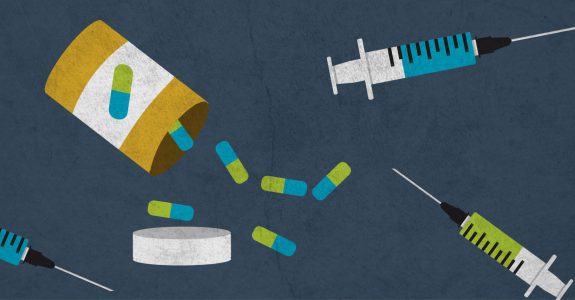Alex Cohen is the Director of Learning and Evaluation for the Richard M. Fairbanks Foundation.
Opioid addiction inflicts damage on Hoosiers in a number of ways. Abuse of prescription opioids and heroin use can lead to deaths by overdose, and they can cause neonatal abstinence syndrome in children of mothers who misuse opioids. When injected, they can also spread HIV and Hepatitis C through needle-sharing.
The recent HIV outbreak in Scott County, Indiana, where the number of new HIV infections more than quadrupled over the course of a few months, provides the most salient example. But the problem is present whenever individuals are sharing needles. It is estimated that 50 to 80 percent of people who inject drugs will contract HIV or Hepatitis B or C within five years of beginning injection drug use.
One powerful solution to address this problem is to ensure that injection drug users have access to clean needles so they don’t resort to sharing. When the Scott County outbreak occurred, then-Governor Mike Pence signed an executive order allowing for a needle exchange to help stem the tide of HIV, and rates have since stabilized.
That experience reflects a wide body of research demonstrating a reduction in HIV cases through implementation of needle exchanges, especially when exchanges place fewer limits on hours of operation or access to needles and have better outreach efforts to injection drug users. A recent study of a program in Washington, D.C., for example, found the city’s needle exchange program prevented 120 new cases of HIV over two years, a 70 percent drop.
In addition, the available research finds needle exchanges can produce cost savings through lower costs of treating HIV and provides some evidence that needle exchanges encourage uptake of addiction treatment services. And despite claims made by critics, there is no evidence that needle exchanges encourage drug use. In fact, the evidence points to the opposite conclusion: needle exchanges are a critical tool to help combat Indiana’s opioid epidemic.
Tackling an epidemic of this magnitude requires using any and all tools available. This includes not just better prevention efforts and improved access to treatment but interventions like needle exchanges that reduce the harms associated with opioid use, as well.
Tagged in: Alex Cohen, Needle Exchanges, Opioid Abuse, Fundação Richard M. Fairbanks



